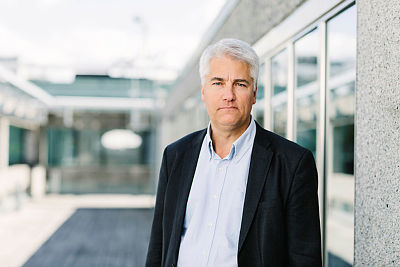Norway’s central bank (Norges Bank) opted against raising interest rates on Thursday, while economists warned of weaker economic growth and “deep concern” about US President Donald Trump’s trade wars. A rise in interest rates still looms in September.

The central bank’s executive board stated that the current “upturn” in the Norwegian economy that began when oil prices started to rise again “appears to be continuing broadly in line with the picture presented in June.” Inflation remains below targets, and the outlook and balance of risks “do not appear to have changed substantially since the June report,” stated Norges Bank Governor Øystein Olsen in the bank’s press release.
The executive board did not change its assessment, however, that the central bank’s key policy rate would “most likely be raised” in September. Inflation is expected to rise, just as Norwegian economists are also raising new concerns about long-lasting low levels of economic growth and weakening faith in the Norwegian economy. While none of the economists making up newspaper Dagens Næringsliv (DN)‘s interest rate panel expected the central bank to raise rates on Thursday, all think the central bank is overly optimistic regarding economic prospects. Kari Due-Andresen, chief economist at Handelsbanken Capital Markets, is worried about prospects for international trade and unhappy that industrial production and retail growth is lower than expected. Ragnar Torvik, a professor at NTNU, calls Norway’s economic recovery after the collapse in oil prices “fragile,” and told DN that economists generally agree that Norges Bank has exaggerated future wage growth.
Bracing for lower and slower growth
More Norwegians, according to the country’s national employers’ organization NHO, need to realize and accept that the period of Norway’s tremendous economic growth is probably over. In its new report on prospects for the Norwegian economy, NHO predicts “varig lavvekst” (ongoing low rates of growth) for the next 30 years. The report, entitled Verden og oss (The world and us), attempts to show how Norway will develop in the decades up to 2050.
“Economic growth will not be at the same levels as the years behind us,” NHO chief Kristin Skogen Lund told newspaper Dagens Næringsliv (DN) earlier this week. The report that was presented during Arendalsuka, when Norway’s most powerful people have gathered in the southern coastal town of Arendal, marks the first time NHO has made such a concerted effort to describe the reality of coming years from the perspective of business owners and managers.

Øystein Dørum, the former chief economist of Norway’s biggest bank DNB who recently moved to the same position at NHO, was also sounding alarms about how Trump’s trade wars are making businesses very nervous. “The tendency towards increased protectionism and a possible reverse of globalization are deeply worrying for Norway’s open economy,” reads NHO’s report that Dørum and other NHO officials presented on Wednesday.
“When the country that we thought was the pillar of the international trade system elects a man who promises to resurrect the American industrial worker, built a wall against Mexico, impose punitive tariffs and import fees, and trash trade agreements, yes, we’re allowed to be deeply worried,” Dørum said. “The ongoing escalation of (Trump’s) trade war shows that these worries are not unfounded.”
More than 25,000 companies are members of NHO and they collectively employ the equivalent of around 570,000 full-time employees in Norway. International trade is critical for the vast majority of them, Dørum said, and for the Norwegian economy and jobs.
Tougher times ahead
News bureau NTB reported that NHO is also worried about rising skepticism towards the trade agreement Norway has with the EU, called the EØS-avtale that’s part of Norway’s membership in the European Economic Area (EEA). Dørum called the EØS pact, which is routinely questioned by the protectionist Center Party and others, Norway’s own “pillar of trade policy.”
NHO boss Lund believes lower and lower growth will force Norwegian politicians to set even tougher priorities in the years ahead, in order to provide more economic opportunity and maintain Norway’s social welfare state. NHO’s report notes that the average Norwegian now has three times the amount of relative income that he or she had in the 1970s. That’s because of the strong growth of Norway’s oil-fueled economy, which isn’t likely to continue. That will lead to lower pay growth (a trend that’s already begun), pressure on the welfare system, and a need for more Norwegians to work in full-time jobs for longer periods.
“Both Øystein and I are part of a generation that has ridden the top of the wave, we have enjoyed the good times,” Lund told DN. “And those who are young today have never experienced really bad times. Then it can be difficult to gain accept for the fact that things must change.”
newsinenglish.no/Nina Berglund

